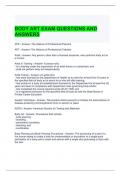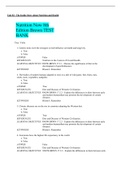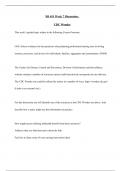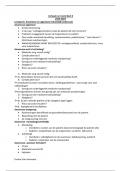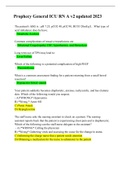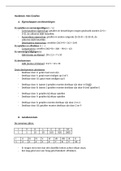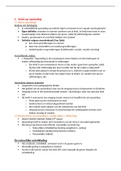Summary
Summary Fiduciaries - Equity & Trusts Law (LLB)
- Module
- Equity And Trust
- Institution
- City University (City)
Fiduciaries Summarised Notes for the Equity and Trusts Law module, LLB, at City, University of London (achieved a 1st class using these) - can of course be used for other universities as well! Should be used with the full bundle of notes!
[Show more]




